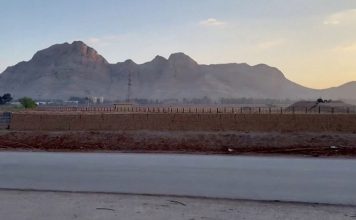By Ahmad Rafat
Screenwriter Narges Abyar is one of five Iranian-born film-industry professionals to have been invited on June 30 to join the American Academy of Motion Picture Arts and Sciences. Her selection has met with fury among hundreds of Iranian film-industry professionals, who are petitioning for the Academy to take back the invitation.
The other four professionals invited to join the Academy — the body that chooses Oscar winners — are filmmakers Samira Makhmalbaf, Ali Abbasi, Elham ShakeriFar, and soundtrack composer Sattar Oraki.
“The selection of Narges Abyar is equivalent to a confirmation of censorship of all self-conscious and independent filmmakers, equivalent to validating the deprivation of Iranian artists who have been in exile in their own country in poverty and silence only because they would not accept to cooperate with the regime,” said the online petition (parts of which were in English) by a group of Iranian film-industry professionals, which has reportedly gathered 1,500 signatures so far.
“We filmmakers, artists, and political activists have objections against this selection,” the petition added. “We demand [that] the Oscars Academy expel Narges Abyar from their list out of respect for the extensive list of victims of the Iranian regime and the rights of Iranian people.”
Born in Tehran in 1970, Abyar was initially an author, publishing some 30 short stories and works of fiction for children and adults before embarking on a film career. Her 2016 movie “Breath” (Nafas) became Iran’s official submission for the Best Foreign Film category at both the 75th Golden Globe Awards and the 90th Academy Awards. Though not shortlisted for either award, Abyar was the first-ever woman to have been selected by Iran to represent it at the Academy Awards.
[aesop_image img=”https://kayhanlife.com/wp-content/uploads/2020/07/نرگس-آبیار.jpg” panorama=”off” credit=”Narges Abyar. Kayhan London” align=”center” lightbox=”off” captionsrc=”custom” captionposition=”left” revealfx=”off” overlay_revealfx=”off”]
A prominent Iranian director who requested anonymity for security reasons told Kayhan Life that Abyar had made an official visit to Tehran’s notorious Evin Prison to mark the anniversary of the opening of its cinema. “Several internationally renowned filmmakers have been incarcerated at this prison in the past, including Jafar Panahi and Mohammad Rasoulof, and documentary filmmakers including Mohammad Nourizad are still serving time in the prison,” the director noted.
“This lady agreed to accompany judiciary officials and the head of the country’s prisons on their visit to Evin Prison to mark the inaugural anniversary of the prison’s cinema,” the director said. “The only way that other directors and documentary filmmakers would get access to the place would be to serve a prison sentence.”
Hassan Ronaghi, a blogger who was an inmate at Evin Prison during Abyar’s visit there, tweeted: “Narges Abyar is among a handful of insider filmmakers who could visit the prison in 2014. Inmates in cell block 7, including me, objected to her visit, which prompted [prison authorities] to restrict our rights and privileges. I could not receive any visitors for a month after that.”
“There were 10 to 15 people” in the delegation touring the prison, Mr. Ronaghi said in another tweet. “I ran and stood in front of Ms. Abyar and shouted, ‘Are you putting on a show?”
“I told her [that] instead of coming here she must visit [cell blocks] 209, A-2, and 350 and see what they had done to the prisoners,” Ronaghi added, pointing out that he was grabbed and told to keep quiet by security officials.
Another well-known Iranian director who currently awaits a prison sentence that will put him back in Evin jail told Kayhan Life: “We in Iran cannot openly criticize the Oscars for inviting Narges Abyar to be one of its newest members. Ours is a silent protest. Not a single person in the [Iranian] film industry has congratulated her on being invited to join the Academy. Our silence shows our disdain for this choice.”
“Narges Abyar’s film ‘Track 143’ was screened at the office of [Iran’s Supreme Leader Ayatollah Ali] Khamenei with the filmmaker present,” the director noted. “Besides Abyar, her husband, Mohammad Hossein Ghaemi, who produces her films, and several other people associated with the film were also at the screening. At the end of the movie, which is about the Iran-Iraq War [1980-88], Khamenei, told the director ‘You did an excellent job directing this film.’”
“I do not remember Khamenei ever praising any filmmaker,” the director added.
Abyar’s 2014 feature “Track 143” was adapted from her novel “The Third Eye,” which tells the story of a woman and her children during the Iran-Iraq War (1980-88). She has also made dozens of documentaries and shorts, mostly about the Iran-Iraq War.
In recent days, a number of Iranians on social media have been sharing a photograph showing Abyar paying a hospital visit to Khamenei following his prostate surgery in September 2014. Several note that Abyar and her husband were among a small group of people who could visit Khamenei in the hospital, and that group excluded some government officials. Social networking sites allege that Abyar’s husband, Mohammad Hossein Ghaemi, has close ties to the security agencies.
Abyar’s other films include: “Objects in Mirror” (Ashya dar ayeneh) (2013) and “Cheike-ye bidang” (2013).
Her latest release, “When the Moon Was Full” (Shabi Ke Mah Kamel Shod) (2019) won five awards at Iran’s Fajr Film Festival, including Best Film and Best Director.
Other voices inside Iran have criticized the Academy Awards for inviting Makhmalbaf to join.
The Tehran-based hardline daily Kayhan condemned the Oscars for their “racism and political bias.” The paper described the invitation to join the Academy Awards as “a mere formality to please gullible people.”
“Samira Makhmalbaf does not have any credible work in her portfolio. She made her last film 18 years ago,” Kayhan added. (Makhmalbaf’s film “Two-Legged Horse” was released in 2008, not 18 years ago.)
This article was translated and adapted from Persian by Fardine Hamidi.







